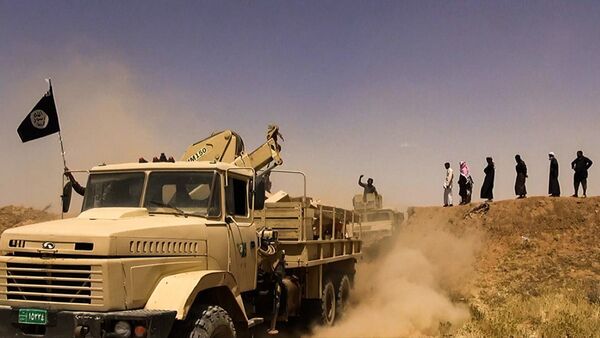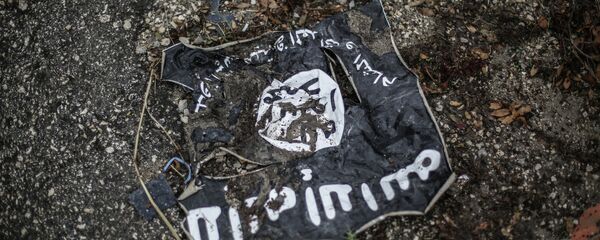According to information in the documents, Daesh appears to be an organization with a strong hierarchical bureaucracy and specific legal codes written in the form of Muslim religious rulings, called fatwas, US officials state, following a review of some of the papers, as reported by Reuters.
"This really kind of brings it out. The level of bureaucratization, organization, the diwans, the committees," Brett McGurk, President Barack Obama's special envoy for the anti-IS coalition, told Reuters.
For instance, there is a diwan handling "war spoils," such as slaves, or a diwan specialized in the exploitation of natural resources, including oil.
Aymenn al-Tamimi, a fellow at the Middle East Forum think tank, said that Daesh successfully created a bureaucratic machine that is the image of a legitimate state.
"Islamic State is invested in the statehood and caliphate image more so than any other jihadist enterprise. So a formal organization, besides being practical when you control so much contiguous territory and major cities, also reinforces the statehood image," he told Reuters.
Most Daesh laws are fatwas that regulate all sides of the group’s activities, including the treatment of slaves, having children and rape of people captured by jihadists.
Another fatwa in the list sanctions human organ harvesting, offering evidence that Daesh may be involved in the trade of body parts.
In other revelation, Reuters reported, Daesh intends to implement fatwas not only in seized parts of Iraq and Syria, but also in those self-proclaimed provinces allied in Africa, the Sinai and South Asia.
US experts said that documents point to weak spots in Daesh culture that will help defeat the extremists. For instance, papers showed that the group, in a mirror of all bureaucracies, is plagued by internal rivalries.




